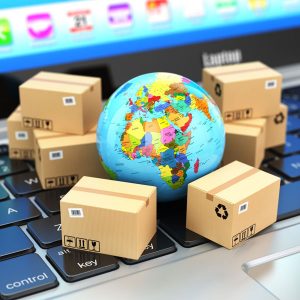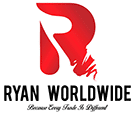What You Need to Know About Customs Clearance in Dubai, UAE
The United Arab Emirates (UAE), located at the crossroads of East and West, serves as a major global trade hub, renowned for its state-of-the-art logistics infrastructure, strong international partnerships, favorable low-tax environment, and many other reasons, all of which make it a prime destination for international commerce.
If your business involves importing or exporting through the UAE, it’s essential to be aware and adhere strictly to the country’s customs regulations. Before your products can hit the shelves, you need to navigate the tricky waters of customs clearance and we’re here to make it easy for you.
What is Customs Clearance?
Goods coming in or out of a country must satisfy and clear all relevant customs regulations of that country. A customs declaration must be filled out, inspected, and approved, providing important details about the goods being imported or exported.
The customs clearance in the UAE is strict and needs to be followed precisely to avoid any issues with the government. It can be straightforward and completed in a short span of time. But any mistakes or missing documents can cause your goods to be held up for weeks or even months.
To avoid these headaches, it’s crucial to have someone skilled in UAE customs clearance handle the process, ensuring your goods are in the right hands and ready for market.

A simple step-by-step guide to customs clearance in the UAE
Document Submission
The first step in the customs clearance process in the UAE is completing the required paperwork. Several documents are necessary to ensure that the imported or exported goods comply with the country’s standards. This step needs to be handled with accuracy and promptness to make the document submission process as smooth as possible.
Verification and Inspection
Once the documents are submitted to the UAE customs department, they will undergo a thorough inspection. Based on this, goods are categorized into three channels: green, red, and yellow. The classification depends on the risk profile of the goods, and subsequent assessments are carried out accordingly.
Tariff Calculation
After the paperwork is verified, the applicable taxes, fees, and expenses are calculated based on the value of the items. The duty rates vary depending on the type of product and where it’s from.
Payment
Following the duty calculation, the estimated charges must be paid promptly to avoid any delays or any additional fees.
Customs Clearance and Release
Once the payment is made, the customs department authorizes the import or export of the goods. After confirming that all requirements have been met, the goods are released and can be delivered to their designated location, accompanied by the necessary documentation throughout.
Documents required for customs clearance in the UAE
It’s crucial to have all your documents prepared, as each one serves a specific purpose:
- To identify the type of goods.
- To determine the value of the goods.
- To establish the origin and destination of the goods
- Any applicable trade agreements.
The documentation required to import goods is:
* Certificate of Origin
Commercial invoice
* Import Permit
* Packing List
* Letter of duty exemption (where needed)
* Bill of Landing
* Original health certificate (for food products)
* Original Halal Slaughter Certificate (for food products)
Customs Clearance Fee in the UAE
When calculating the price, several factors come into play, but let’s focus on the common fees involved in customs clearance in the UAE:
- Customs Duty: This is a tax imposed on your goods based on the UAE customs tariff. The duty rate varies according to the percentage value of the product, type, origin, etc.
- VAT (Value Added Tax): Typically set at 5% of the value of most goods, though it can vary depending on the country.
- Other Charges: Additional services like storage, inspection, and X-rays may be required to ensure the goods meet safety and commercial standards. If the goods exceed their free time period, additional storage fees will be applied.
Controlled Goods in the UAE
Certain products are controlled, and their trade is subject to special regulations, which may require additional oversight or approvals. You will need special permissions for the following:-
- Pet animals
- Live animals (birds/fish)
- Meat/beef/poultry products
- Weapons/arms
- Pharmaceutical products
- Beverages/alcohol/cigarettes
- Media products
Prohibited Goods in the UAE
Certain goods are prohibited from entering the country due to legal restrictions or safety concerns.They include:
- Pirated media
- Counterfeit goods and currency
- Narcotic substances
- Gambling machines and tools
- Any artwork or publications that challenge or contradict the teachings of the Islamic faith
- Items associated with witchcraft, sorcery, and black magic
Customs Department in the UAE
The UAE is composed of seven emirates—Abu Dhabi, Dubai, Sharjah, Ajman, Fujairah, Ras Al Khaimah, and Umm Al Quwain—each with its own customs department, governed by the Federal Customs Authority. This authority collaborates with each emirate’s customs department and represents the UAE both domestically and internationally. While each emirate develops and regulates its own customs laws and initiatives, these are all overseen by the Federal Customs Authority to ensure smooth and fair trade across the country.
For more information about customs clearance in the UAE, visit the official website: Customs Clearance.
Why choose Ryan Worldwide in UAE?
With around 10 years of experience, Ryan Logistics has been simplifying operations for businesses by managing their logistics needs efficiently. We specialize in customs clearance in Dubai and the UAE, handling all types of commercial goods and import-export materials. Our deep understanding of government regulations ensures precise documentation and swift processing, minimizing costs and avoiding delays.
Place your trust in Ryan to simplify your logistics and keep your operations running smoothly. Contact us today to know more.


Write a Comment